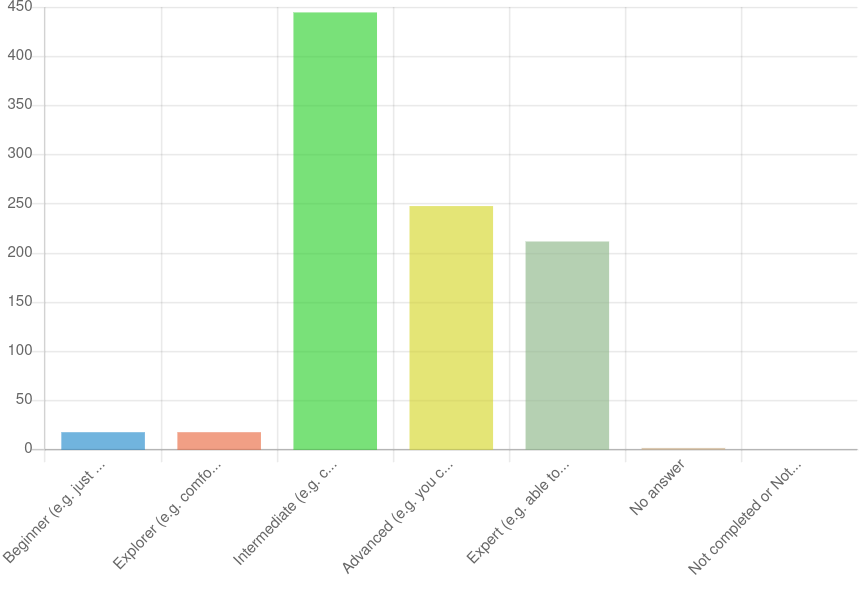Author:
Source
Sponsored:
Working in Public: The Making and Maintenance of Open Source Software - Audiobook

Unlock the Digital Creator Code!
IRPF-Livre 2023 released
Governments come and go, but the oppression of imposed taxing software
for taxation remains.
For a lot of people, using software they cannot control is like water
for a fish: a part of the environment they’re in. When the water is
low on oxygen, they may even feel the discomfort, but they seldom
trace it back to the root cause.
For us who love, live and breathe software freedom, any program that
takes it away, that attempts to control our computing and ultimately
ourselves, is painful like a sore toe in a tight shoe.
Uncomfortable and painful as the oxygen-deprived water and the tight
shoe might be, being forced to breathe or wear them, prevented from
seeking better waters or from taking the shoes out, is unbearable.
We struggle to correct an analogous injustice. We had a chance to
relieve one case of imposed taxing software for taxation, so we took
it, and held on to it:
Back in 2007, IRPF, the program that Brazilian taxpayers are required
to run to prepare their income tax returns, was released without
obfuscation, with debug information and surprisingly even under an
acceptable license, which enabled us to reverse engineer it and from
then on to update the rescued source code.
That relieved the primary oppression, but the government changes the
software yearly, so every year brings a new threat to our freedom, and
defending it requires duplicating the changes. That, too, is unjustly
taxing!
Democratic governments ought to respect our freedom, not threaten it.
The tax laws and regulations that the program implements are and must
be public code. Nothing that the software is programmed to do should
be a secret. The tax returns need to be and are verified after
turning in. Nothing justifies making the program freedom depriving.
That it remains so is a manifestation of the bad habit of abusing
power through software, of hijacking others’ computers to serve one’s
purposes, without thinking much of it. Thus we draw the fish’s
attention to the toxic water, and to the root cause of its toxicity.
As we celebrate the 16th anniversary of the IRPF-Livre project, and
take the too-tight shoes out by releasing its updates for 2023, we
call upon the new Brazilian government, and indeed upon all democratic
governments, to quit this bad habit, and to release, under freedom-
and transparency-respecting terms, the source code for all
government-mandated programs, so that they are not imposed taxing
software.
https://www.fsfla.org/~lxoliva/fsfla/irpf-livre/2023/
About Imposed Taxing Software
Since 2006, we have been running a campaign against imposed taxing
software: programs that are imposed in the sense that you cannot avoid
them, and taxing in the sense that they burden you in a way that
resembles a tax, but is exempt from social benefits and paid for with
your freedom.
Nonfree programs are unjust and too onerous (even when they are
nominally gratis), because they imply a loss of freedom, that is, of
control over your digital life. When this burden (of suppressed
freedom) is compounded with the imposition of use of such programs,
they become profoundly oppressive: imposed taxing software.
Our initial focus was on oppressive software imposed by governments,
such as mandatory tax-related programs and software required to
interact with public banks.
https://www.fsfla.org/circular/2006-11#Editorial
While pressuring the government to liberate income tax software in
Brazil, we have been updating and publishing a compatible and
freedom-respecting version every year since 2007.
https://www.fsfla.org/anuncio/2012-10-Acesso-SoftImp
https://www.fsfla.org/~lxoliva/fsfla/irpf-livre/
In 2023, we extended the campaign to taxing software imposed by
private providers: when freedom-depriving software is required to
obtain or enjoy products or services.
To be clear, this campaign is not (solely) about software for
taxation, but rather about software that is taxing (an unjust burden,
because it taxes your freedom; the software is itself like a tax), and
that, on top of that, is imposed, thus profoundly oppressive.
About IRPF-Livre
It’s a software development project to prepare Natural Person’s Income
Tax returns compliant with the standards defined by the Brazilian
Secretaria de Receita Federal (IRS), but without the technical and
legal insecurity imposed by it.
IRPF-Livre is Free Software, that is, software that respects users’
freedom to run it for any purpose, to study its source code and adapt
it to their needs, and to distribute copies, modified or not.
The program is available both in source and Java object code forms:
http://www.fsfla.org/~lxoliva/fsfla/irpf-livre/
About FSFLA
Free Software Foundation Latin America joined in 2005 the
international FSF network, previously formed by Free Software
Foundations in the United States, in Europe and in India. These
sister organizations work in their corresponding geographies towards
promoting the same Free Software ideals and defending the same
freedoms for software users and developers, working locally but
cooperating globally.
https://www.fsfla.org/
Copyright 2023 FSFLA
Permission is granted to make and distribute verbatim copies of this
entire document without royalty, provided the copyright notice, the
document’s official URL, and this permission notice are preserved.
Permission is also granted to make and distribute verbatim copies of
individual sections of this document worldwide without royalty
provided the copyright notice and the permission notice above are
preserved, and the document’s official URL is preserved or replaced by
the individual section’s official URL.


